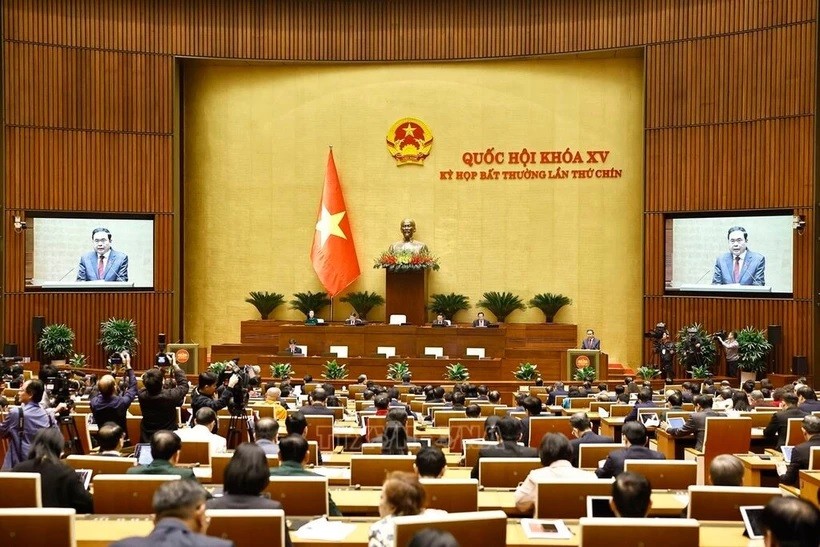Vietnam's 30 Years of Pursuing Effective Maritime Strategy
 |
| The maritime strategy and the strategy for sustainable development of the marine economy have brought about certain economic achievements. Photo: tapchicongsan.org.vn |
The sea is considered a space for development and security of the Vietnamese. The maritime strategy and the strategy of sustainable development of the marine economy of Vietnam are formed by the following factors: geography, long coastline, wide sea; The economic and cultural life of Vietnamese people is always associated with the sea.
Strategic vision
Vietnam has quickly realized the importance of the sea for economy, national security and social development, through specific policy tools since the 1990s.
Resolution 03/NQ-TW dated May 6, 1993 set the goal of turning Vietnam into a strong maritime nation. Then, Resolution 09-NQ/TW dated January 9, 2007 on Vietnam's marine strategy up to 2020 was passed with a focus on becoming a "strong maritime country" through "developing all potentials from the sea."
The goal of the Resolution is that by 2020, Vietnam achieves 53-55% of GDP contribution from the marine and coastal economy, and GDP per capita growth in coastal and marine communities is more than twice the national average.
Resolution 36-NQ/TW dated October 22, 2018 on the Strategy for sustainable development of the marine economy to 2030, with a vision to 2045, continues the goal of turning Vietnam into a strong and rich country from the sea.
It emphasizes “sustainable development of the marine economy based on green growth”. The indicators on sea and ocean governance, coastal zone management are required according to international standards, reaching the level of the upper middle-income countries in the world.
The Maritime Strategy 2007-2020 emphasizes the importance of modernizing marine economic sectors and protecting the environment while prioritizing development of oil, gas and marine transportation.
The strategy for sustainable development of the marine economy to 2030, with a vision to 2045, shifts the focus to sea tourism, with more emphasis on environmental protection and marine economic development.
Vietnam has also fully joined international treaties on the environment and the sea, builds a legal system for marine management.
Vietnam promotes negotiations to settle maritime disputes, creating conditions for clearly defining sea areas according to UNCLOS to implement its maritime strategy.
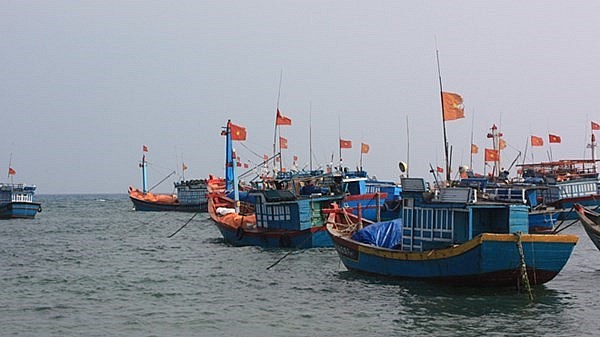 |
| Photo: camau.gov.vn |
Vietnam's efforts and achievements
Financial resources, science and technology and human resources in Vietnam have been focused on marine industries such as oil and gas, construction of seaports and fishing ports.
Vietnam has quickly established specialized inspection and control forces at sea such as the Coast Guard since 1998, and Fisheries Control in 2014.
Vietnam participates in programs of PEMSEA, UNEP, IUCN and other organizations in the region. Currently, 14/28 provinces and cities have developed an integrated management strategy for coastal areas.
The implementation of the 2007-2020 Maritime Strategy and the Strategy for sustainable development of marine economy to 2030 with a vision to 2045 in the past 30 years has brought about certain economic achievements, forming a new economic development direction based on the potential and advantages of the sea.
From 2011 to 2020, marine economic sectors have made great contributions to the country's GDP. In 2020, the GRDP of 28 coastal provinces at current prices accounted for 50.1% of the country's GDP. The local growth rate of the coastal strip reached 6.4% per year on average.
| According to Ambassador Nguyen Hong Thao, to successfully implement a blue economy, Vietnam needs to: Firstly, promoting negotiations to settle maritime disputes, creating conditions for defining clear maritime boundaries, serving marine spatial planning and sustainable marine economic development. Second, perfecting the institution for sustainable development of the marine economy, giving priority to completing the legal corridor, renovating and developing a model of green growth and environmental protection; improving the productivity, quality and competitiveness of marine, coastal economic sectors. Vietnam needs to review, adjust, and make new plans related to the sea, ensuring the linkage and synchronization between sectors and localities. Third, developing science, technology and training high-quality human resources, promoting innovation and creativity, taking advantage of scientific achievements, advanced technology, attracting professionals experts, leading scientists, high-quality human resources. Fourth, developing synchronous infrastructure, transport networks connecting major economic centers of the country, industrial parks, urban areas, sea areas with seaports, strategically connecting North -South, East-West between domestic and international regions. Fifth, attracting international investment, technology and finance for the development of the blue economy; participate in international treaties on the protection of marine resources and environment. |
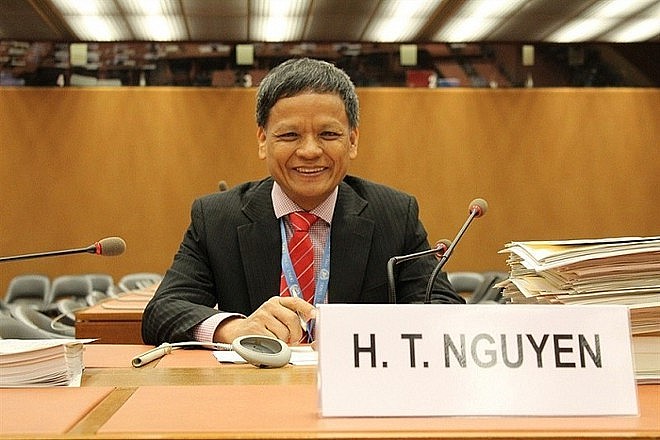 |
| Ambassador Nguyen Hong Thao. Photo: NLD |
| About the writer: Associate Professor, Ambassador Nguyen Hong Thao is a Vietnamese diplomat and legal expert. He used to participate in important negotiating delegations on border issues with China, Laos and Cambodia; Previously held the position of Deputy Head of the National Border Committee. He was appointed Ambassador of Vietnam to Kuwait and Malaysia, before becoming a member of ILC for the first time in 2016. |
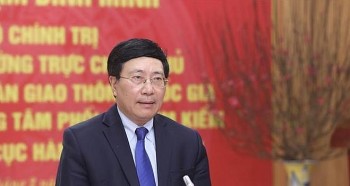 | Vietnam MRCC Provides an Invaluable Service for Those at Sea Deputy Prime Minister Pham Binh Minh and the delegation on February 8 visited the Vietnam Maritime Search and Rescue Coordination Center (Vietnam MRCC) (under the ... |
 | Countries, Organizations Must Respect Vietnam’s Maritime Sovereignty: Spokesperson Vietnam rejects the so-called “nine-dash line” and maritime claims that run counter to international laws, particularly the 1982 UN Convention on the Law of the ... |
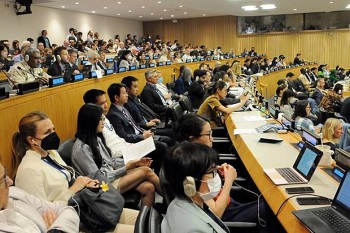 | Vietnam Support Negotiations for Instrument to Regulate Maritime Issues The marine biological diversity of areas beyond national jurisdiction (BBNJ) negotiation, discussing an international legally binding instrument under the United Nations Convention on the Law ... |
Recommended
 Seas and islands
Seas and islands
Vietnam Endorses Common Voice on Ocean Jurisdiction
 Seas and islands
Seas and islands
Dialogue as Key to Settling Disputes and Advancing Law of the Sea
 Seas and islands
Seas and islands
RoK Navy Ship Pays Friendly Visit to Da Nang City
 Seas and islands
Seas and islands
Naval Region 5 Promotes Reading Culture, Fosters Patriotism
 Seas and islands
Seas and islands
Coast Guard Region 2 Command Hosts Philippine Coast Counterpart
 Seas and islands
Seas and islands
Vietnam - Thailand Navy: Coordination to Well Address Problems at Sea
 Seas and islands
Seas and islands
Honoring the Fallen: Incense Offering for the 37th Anniversary of Gac Ma
 Seas and islands
Seas and islands

